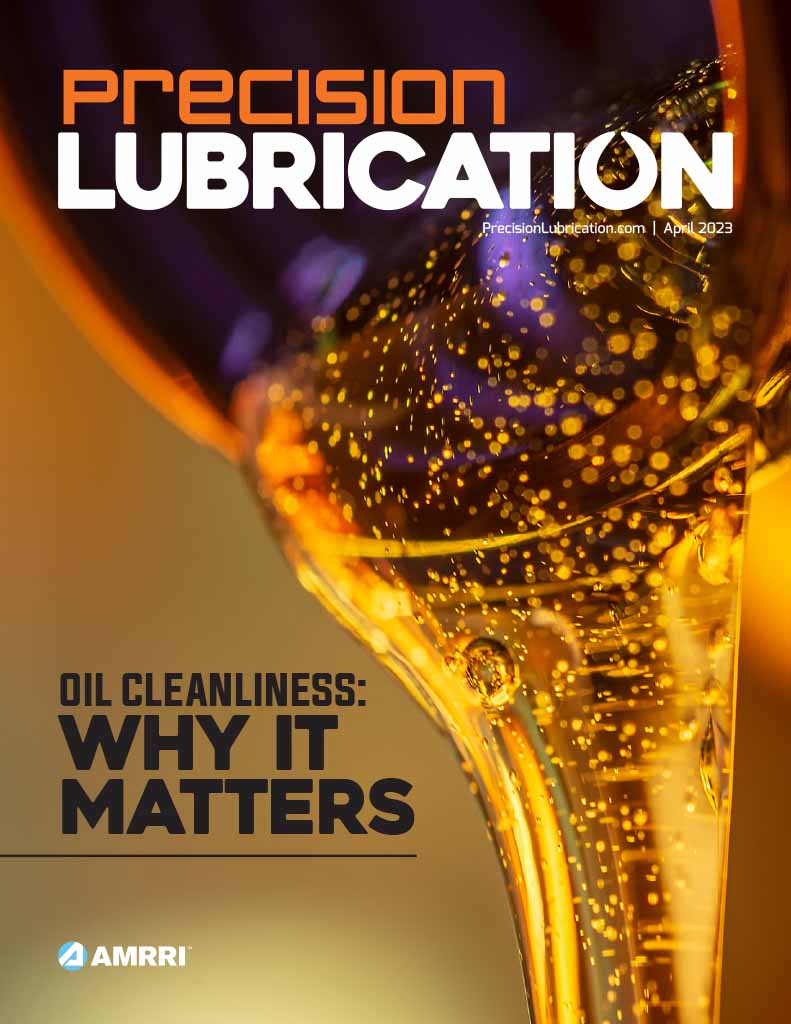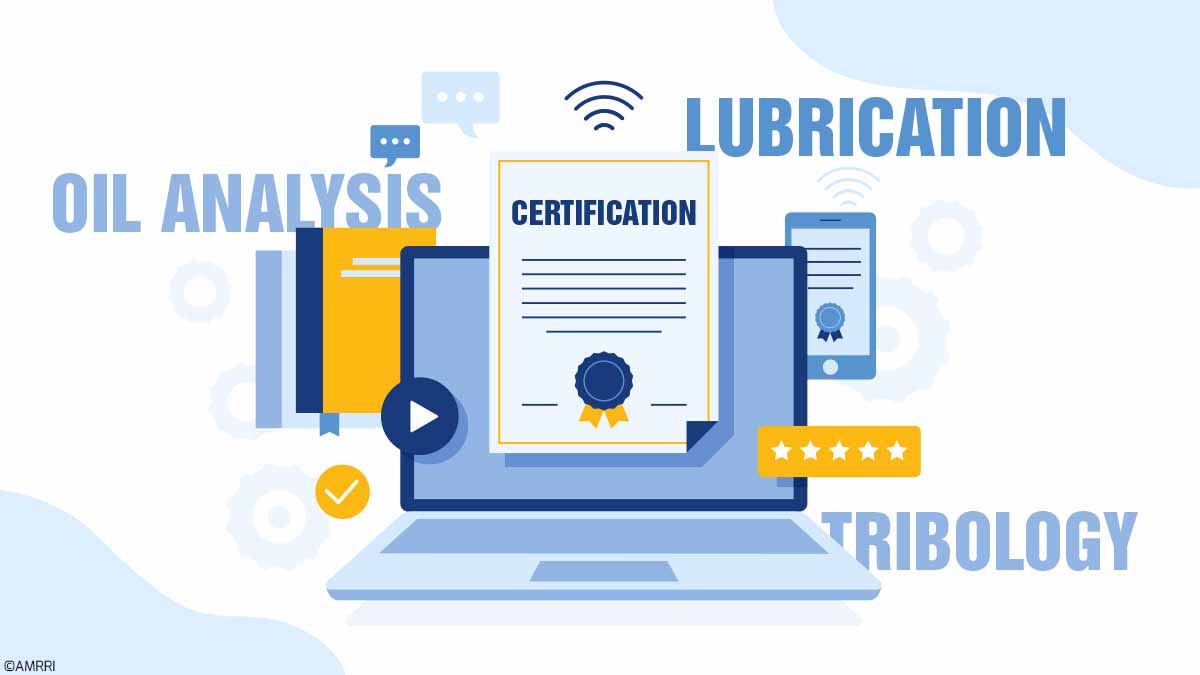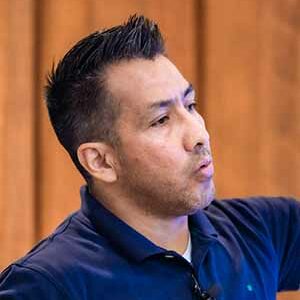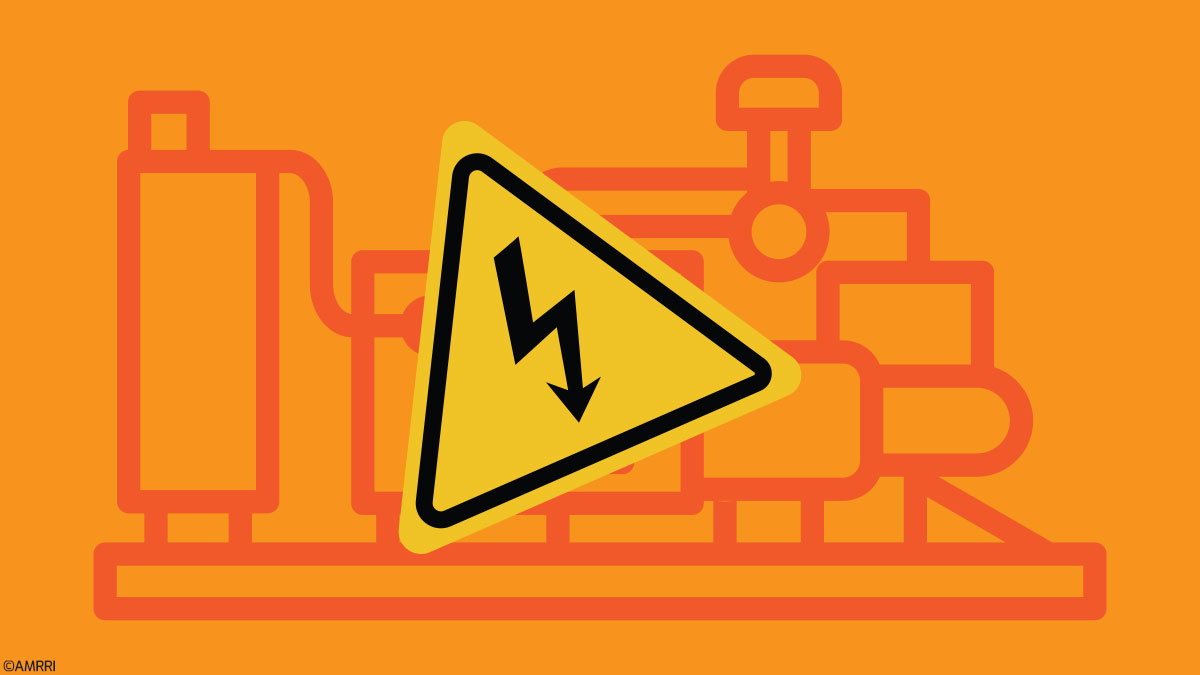“I want to obtain a certification in the area of…” is often one of the goals set by maintenance personnel, especially those working in predictive maintenance. One of the certifications in the predictive area that has seen significant growth is the lubrication certification. However, doubts arise from the very first moment an individual considers obtaining such a certification.
Lubrication, oil analysis, and tribology share common ground – but each follows a completely different science, purpose, and career path.
For inappropriate reasons, primarily for marketing purposes, the terms “lubrication,” “oil analysis,” and tribology have been mistakenly treated as synonyms or words that share the same purpose. Thus, when individuals seek certification, they face a rather complex task in making the appropriate choice and, above all, in responding to their initial need, which is obtaining knowledge and a certificate to back it up.
Are the terms Lubrication, Tribology, and Oil Analysis similar? No! That’s the first thing to consider when seeking certification in this field. A survey of 86 people seeking certification clearly revealed the lack of awareness and confusion in the market.
Thirty-two of the respondents (37%) were seeking certification in tribology. Of these, only one actually took a tribology course after further researching the topic.
26 of the respondents (30%) were seeking certification in lubrication, while 28 (32%) were interested in oil analysis.
Understanding the Practical Differences Between Oil Analysis and Tribology
Let’s examine the real situation from these perspectives. Oil analysis involves a laboratory where lubricant samples (oil or grease) are received, their physicochemical characteristics are analyzed and compared with a reference, and a result is issued. A tribology laboratory, on the other hand, not only works with lubricants but also has a much broader scope.
It can extend to component surfaces, lubricating media that are not necessarily industrial lubricants, and the analysis of wear suffered by parts based on previously determined conditions. While an oil analysis laboratory analyzes hundreds of samples per day, a tribology laboratory primarily works on projects where a component, fluid, or surface goes through a series of analytical phases that can take weeks or even months.
And what about lubrication? Are there lubrication laboratories? Can lubrication be simulated in a laboratory? In this case, lubrication refers to a series of stages in which the lubricant passes through the plant.
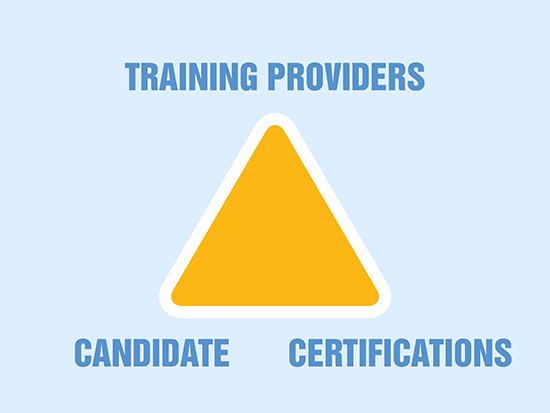
What Role Do Training Providers Play?
Of course, one of the key links in this chain is those responsible for training. In this area, there is an invisible classification that is often not obvious to the candidate. If we return to the three initial terms, trainers generally have experience in at least one of the areas. That is, they know, have experience, and can transmit what they know in the areas of tribology, lubrication, and oil analysis.
If you are a potential candidate, it is very likely that the previous lines have already clarified your doubts somewhat, or perhaps, on the contrary, have generated much deeper ones, simply because you assumed the three terms were interchangeable and similar.
Clarity begins when you stop treating lubrication, oil analysis, and tribology as interchangeable – and start seeing them as distinct disciplines.
If you already know the area in which you want to obtain certification, it is logical that you should look for a trainer who has knowledge and experience in that area. Let’s go a little deeper. I was fortunate enough to grow professionally in one of the world’s best lubricant analysis laboratories, while one of the world’s best tribology laboratories was located just down the floor.
Have you heard of Professor Peter Jost? He was the author of the eponymous “Jost Report,” the report of the Working Group established in 1964 to investigate the state of lubrication training and research in the United Kingdom. For the next five decades, until his passing in 2016, he continually emphasized the importance of tribology for manufacturing efficiency, energy conversion, and environmental sustainability.
This magnanimous gentleman was a thesis advisor for some of my colleagues in the tribology laboratory. Let’s apply simple logic: if you were looking for a certification in tribology, which of the two laboratories would you go to?
What Certification Alternatives Are Available on the Market?
At least for now, there are two recognized entities that issue certification in the areas of dispute. In this article, we will not analyze whether they meet the requirements of international certification regulations, but simply the certification options.
STLE, the Society of Tribological and Lubrication Engineers. Founded in 1944 initially as the American Society of Lubrication Engineers (ASLE), it changed its name to STLE between 1987 and 1988. It offers four certifications:
- Certified Lubrication Specialist – covers a broad area of field lubrication, the mechanical principles of lubricated machinery, and lubricant analysis.
- Certified Oil Monitoring Analyst – aimed at certifying knowledge in the area of lubricant and fluid analysis, such as coolants. It covers primarily a basic or initial level.
- Certified Oil Monitoring Expert – similar to the previous one, but aimed at a more advanced level.
- Certified Metalworking Fluids Specialist – focuses solely on fluids such as cutting fluids or coolants. If this is your area, this is the certification you’re looking for.
ICML, the International Council for Machinery Lubrication, founded in 2001, is a non-profit organization. It offers certifications in the following areas:
- Machinery Lubrication Technician, two levels
- Machine Lubricant Analyst, three levels
- Machinery Lubrication Engineer
- Laboratory Lubricant Analyst, two levels
Both types of certification fully cover two of the three terms in dispute. What about tribology? Although the trainers, or at least the material they provide, mention something about tribology, it is very brief and insufficient, considering its scope.
Apparently, it is the science that studies surfaces interacting in relative motion, as well as any aspect related to the design and operation of a machine concerning friction, wear, and lubrication. This has a pending issue: certification.
Aspects to Consider When Seeking Certification
- The trainer’s experience in the selected field. Do they know about lubrication, oil analysis, and tribology? 3 out of 3 is a checkmate.
- The trainer’s depth of knowledge. Does he or she work in a lubricant analysis laboratory? Does he or she work in a tribology laboratory? Does he or she know about lubrication?
- What certifications does the trainer have?
- Will the certification you are seeking be helpful to you professionally or personally?
- Does your employer value certifications in this field?
- Will the certification have an impact on your professional work and work environment?
Remember, the ignorant buy trinkets, the wise acquire knowledge.

